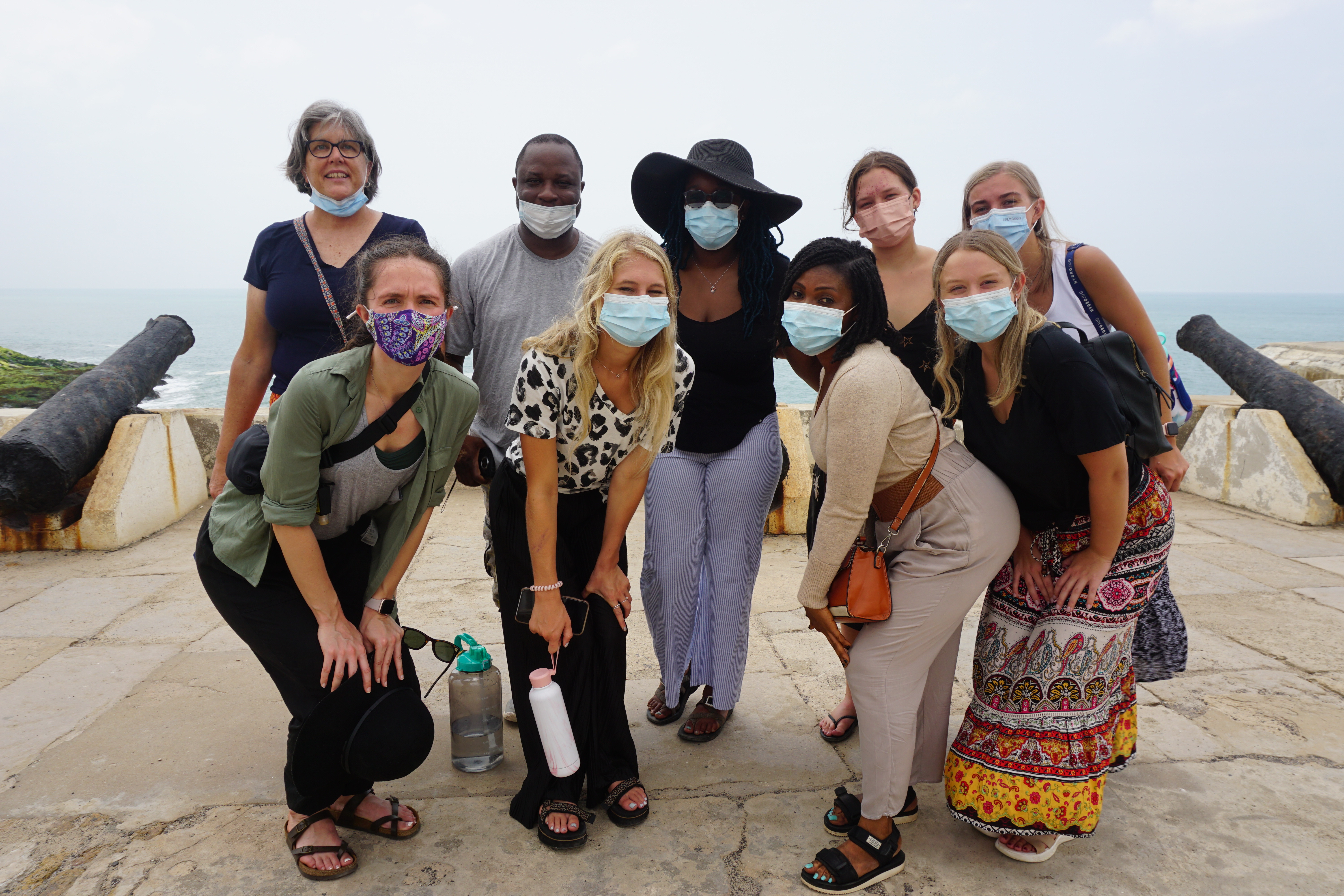Ghana as a graduate student
By Sarah A.
Sept. 10, 2021
I am so thankful to have the opportunity to go to Ghana in West Africa, a part of the world I would never have been able to visit on my own, let alone during a global pandemic! That fact required more extensive pre-planning than normal for visas, vaccines, malaria prophylaxis and a very anxious 48 hours awaiting COVID test results. With all required documents in hand, we set off on our adventure. Our group is much smaller than normal, five students, me and our instructor, but we all felt equally thankful for the opportunity to go. Upon arrival, I was met with so much culture shock, which was heightened from spending the last 18 months in relative isolation. Everything was loud, bustling, and hot! We made the 2–3 or 4-hour drive to Cape Coast from the capitol of Accra. There, we settled into our lovely guest house and were greeted by the wonderful staff from Africa Our Home. We spent the next few days getting acclimated to the town, time change, “Ghana-man time,” language and climate. Our stay lacked some creature comforts I was accustomed to, like air conditioning, abundant water and unlimited internet, but we quickly learned that the residents dealt with much less and we were very lucky to have what we had.

Halfway through the first week, we began our project work in the local communities. We assisted with well-child visits, which were done in a very different way than in the U.S. but still accomplished the same thing. We visited schools where we gave talks about teenage pregnancy, COVID-19 and personal hygien… and whatever else they wanted to ask. When we got out of our van for the first time at the school, several students were joyfully yelling and running to us! During our discussion one student asked, “How can you accomplish your dreams?” This touched my heart so much. I replied with, “You can do anything you set your mind to!” As a graduate student, in addition to project work, my duties included doing research and giving presentations to the undergraduates about local infectious diseases and how the Ghanaian health systems compares to the U.S.
On the weekend, we took time to see some of the highlights of Cape Coast which included a visit to the Cape Coast Slave Castle. We learned many shocking details about the history of the Trans-Atlantic salve trade. I have concluded that this is something that every American should take the time to learn more about. The next day, we visited a village that past MU Study Abroad programs had helped build a community center for. We met the chief and toured the town, learning how they make palm oil. We then made our way to the Kakum National Park where we took a Canopy Walk through the rainforest. I have enjoyed my time so far and have learned a great deal about what life is like for people in this part of the world and how it can be applied to future practice in the U.S.
